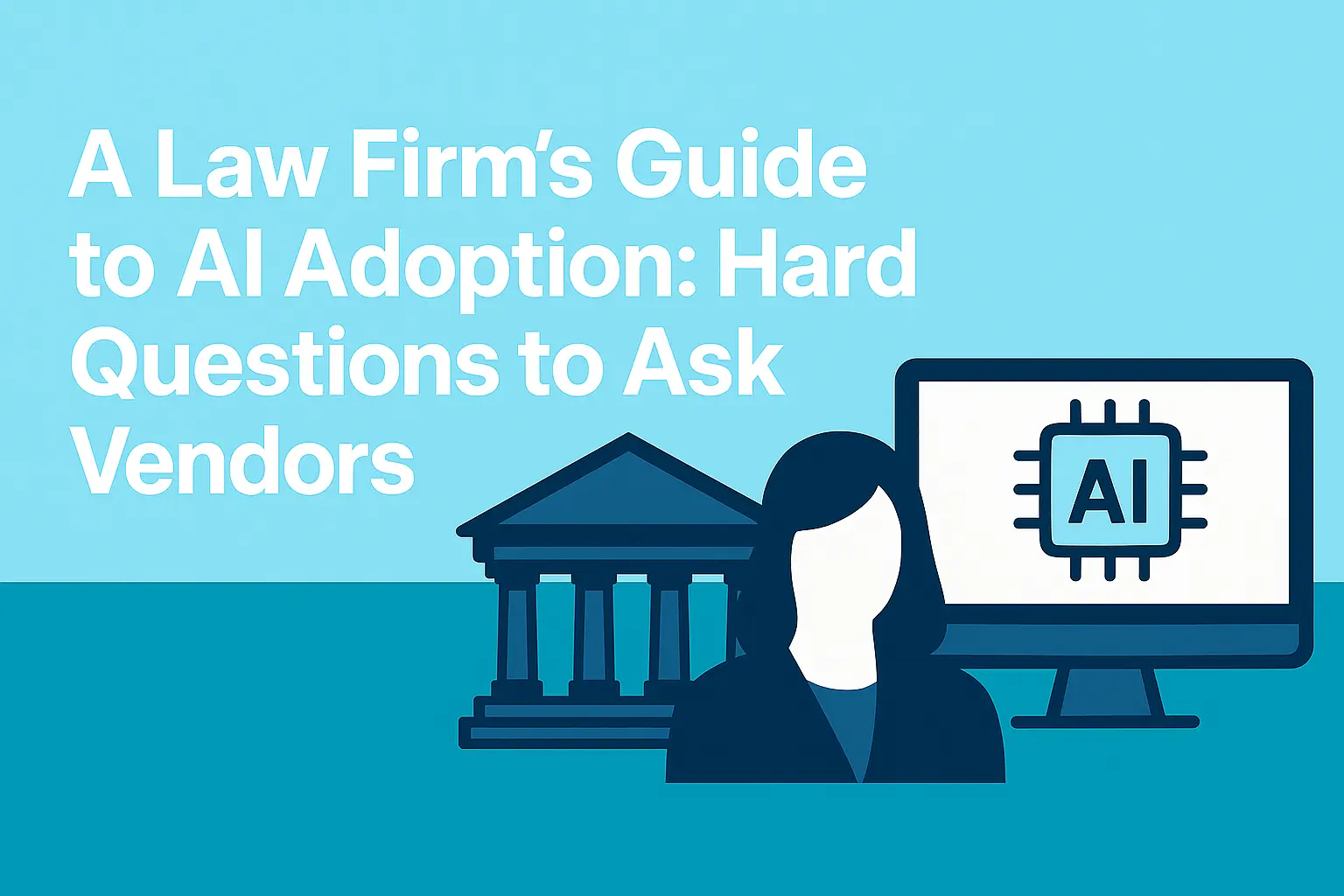
Guide for Law Firms: Questions to Ask AI Vendors Before Adoption
When partners debate adopting AI, excitement quickly meets hesitation. The wrong system won't just waste money, it can erode client trust and damage firm standards. This guide frames the questions every law firm should put to a vendor before signing a contract. Think of it less as a checklist, more as advice from a colleague who's seen what works and what fails. Along the way, I'll note how Qanooni has tackled these same issues.
Does the AI Truly Understand Legal Context?
Imagine reviewing a five-year SaaS contract. Generic AI might simply flag it as "unusual." A good legal AI should know that five years is ordinary in a lease but risky in software deals. Push vendors: can your system adapt to deal type, client role, and jurisdiction? If it can't, it will flood you with false positives. Qanooni was built to embed jurisdictional awareness and sector context because anomalies alone don't equal risk.
Can It Respect Our Precedents and Style?
Firms are defined by their precedents and drafting style. If an AI ignores that, associates will spend hours re-editing its output. Ask: can you align to my style guide, definitions, and past deals? Will the system learn from our edits? Qanooni does this through Passive Playbooks, which capture each firm's evolving standards. Without that, adoption will falter.
Will Lawyers Actually Use It?
The tools lawyers embrace are the ones that sit inside their daily workflow. If an AI tool demands switching platforms, adoption plummets. Demand to see it working inside Word and Outlook, integrated with your DMS or matter system. In our experience, adoption rises only when the tool feels invisible part of existing workflows, not another tab.
Is Security Non-Negotiable?
Clients will ask: where does our data live? Who can see it? The vendor should answer with clarity: data residency options, encryption, audit logs, and an absolute "no" on using client data for training. Anything less introduces risk you can't defend. Qanooni treats this as baseline: tenancy isolation, no client data training, full encryption.
How Will We Measure ROI?
Adoption won't stick if partners don't see returns. Before starting, set metrics: drafting time per document, review cycles to "client-ready," turnaround time in days. A strong vendor will support a pilot where you can validate whether lawyers are saving hours. Qanooni clients consistently report saving 8–10 hours per week and handling ~2.2x more matters. That's the kind of proof that convinces partners.
Can It Handle Our Practice Mix?
A demo on an NDA is meaningless if your main work is litigation, property, or private client. Ask: what can your system do in each practice area? The strongest vendors can show litigation chronologies, corporate redlines, lease drafting, and private client workflows. Qanooni was tuned with this variety in mind, because law firms don't live in one practice silo.
Does It Support Governance?
Finally, ask about control and oversight. Can you require human sign-off before anything client-facing leaves the system? Can you audit who asked what, and when? Can you configure policies for sensitive information? Governance isn't decoration, it's the backbone of safe adoption. Vendors who dodge these questions shouldn't make the shortlist.
Closing Thought
Adopting AI is not about chasing hype, it's about protecting your standards while unlocking efficiency. The right vendor strengthens your way of working rather than forcing you into theirs. At Qanooni, we built around that principle: human lawyers in control, AI as the accelerator. If you'd like to see what that looks like in practise, book a demo and test us on the questions above.